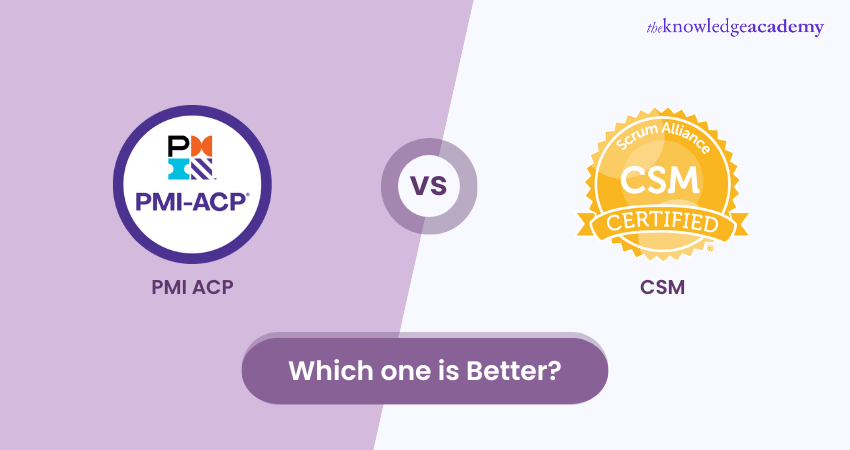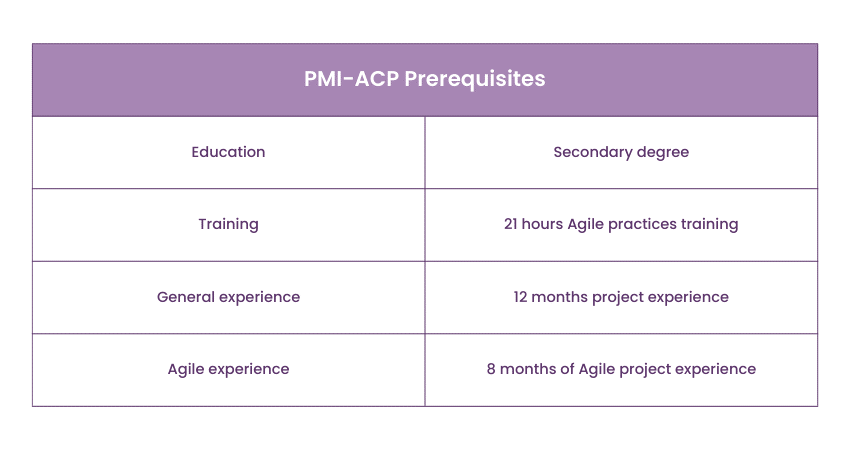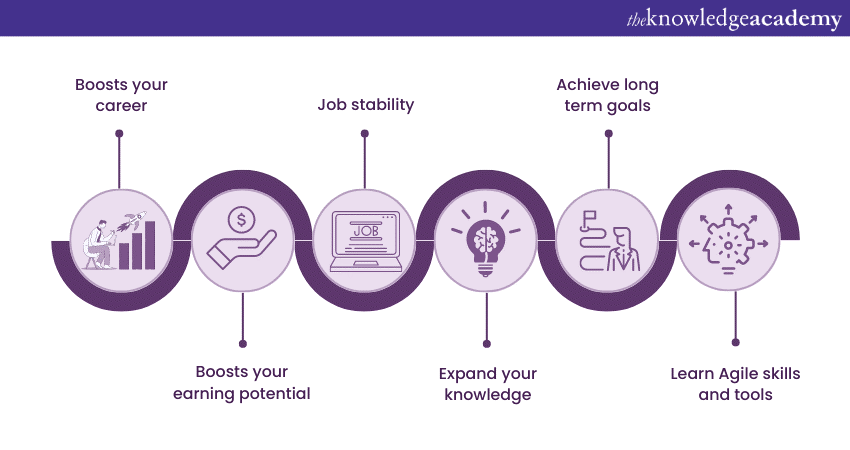We may not have the course you’re looking for. If you enquire or give us a call on +34 932716793 and speak to our training experts, we may still be able to help with your training requirements.
We ensure quality, budget-alignment, and timely delivery by our expert instructors.

In today's competitive world, you must constantly learn and improve your knowledge to survive. The Project Management Institute (PMI) offers several certificates, such as Agile Certified Practioner (ACP) and Certified Scrum Master (CSM). Project Management is a unicorn as it offers higher wages and stability and gives career stability. Having a PMI-ACP or CSM certification improves your portfolio and career prospects.
As per PayScale PMI-ACP professionals earn an average of 50,000 GBP; for CSM professionals, it is 56,000 GBP per year. Obtaining any of these provides many benefits, like increased wages and career prospects. In this blog, you will learn the differences between PMI ACP and CSM with a detailed comparison. By the end, you will know which one is better and what to choose.
Table of Contents
1) An Introduction to PMI ACP
2) An Introduction to CSM
3) PMI ACP or CSM: A detailed comparison
4) Which one to choose?
5) Conclusion
An Introduction to PMI ACP

PMI ACP or PMI Agile Certified Practitioner is a qualification highly regarded among project management professionals. It provides a convenient approach to Project Management. It emphasises the importance of using Agile methodologies, bringing numerous Benefits of PMI-ACP Certification.
It is difficult to qualify for PMI-ACP as you must fulfill certain PMI-ACP Certification requirements. These criteria include 2000 hours of general work experience with project teams and 1500 hours of work experience with Agile Project teams, which are essential for PMI ACP Exam Questions. If you're looking to understand how to get PMI-ACP certification, meeting these prerequisites is a crucial first step.

An Introduction to CSM
The Scrum approach is one of the most used methodologies, and CSM is considered the initial step to improve your Agile knowledge. It helps you understand the basic terminologies, practices and principles.
The CSM Certification helps prove your proficiency in Scrum, and it doesn't necessarily have any prerequisites other than the 2-day training from a verified trainer. The adoption of Scrum is growing at a blistering pace, and having this qualification on your resume is a definite advantage.
PMI ACP or CSM: A detailed comparison
PMI ACP and CSM are useful credentials that can improve your skills in Project Management. Both differ significantly regarding the Agile methodologies, key topics, exam format, career prospects, recognition and application. Some of these differences between PMI-ACP and CSM are explained below in great detail.
Exam Format
The following is a difference between both certifications in terms of their exam formats.
PMI-ACP Exam format: The PMI-ACP exam is based on multiple-choice questions, and it consists of 120 questions which you need to complete within 3 hours. The primary purpose of the exam is to test whether you are familiar with Agile methodologies like Kanban, XP, Lean, Scrum, etc. You must score above the 62 percent threshold to obtain this qualification.
CSM Exam format: The exam has about 50 questions, and you need to answer at least 37 correctly in one hour. Apart from this, you would have two more attempts to take the exam within 90 days if in case you fail.
Before attending the exam, CSM requires you to attend training for two days. A Certified Scrum trainer should conduct this training. In this training, you will be assessed on various criteria, like how well you know and understand Scrum practices and principles.
Level of difficulty: When it comes to the level of difficulty, whether it is the CSM assessment or the PMI-ACP exam, they both are relatively difficult. However, the latter is considered more difficult as it deeply tests your Agile knowledge. It covers many key areas of Agile framework and tests on Agile principles and practices.
What topics do they cover?
PMI-ACQ qualification requires a clear understanding of Agile principles and practices and tests your ability to apply them in practical situations. Some of the Agile topics it covers are listed below:
a) Scrum
b) Extreme programming
c) Kanban
d) Learn
e) Test-driven development
On the other hand, the CSM certification primarily focuses on Scrum methodologies and their application in Agile project management. It covers some key topics like Scrum practises, roles, and protocols.
Market demand
The Agile practitioner's community holds both CSM and PMI-ACP in high regard. However, they consider CSM an entry point into Agile Project Management and PMI-ACP as a whole package as it offers in-depth and clear coverage of Agile processes and frameworks.
CSM primarily focuses on Scrum techniques and receives wide acceptance in organisations that apply Scrum to their Agile practises. On the other hand, PMI-ACP is well-renowned globally and tends to be accepted by organisations that hold great importance to using Agile approaches to their project management.
Career prospects
Although both of these qualifications are useful for professionals looking to advance their careers. If you are passionate about working in Agile Project Management, Agile coaching and consulting, then you can proceed with PMI-ACP.
People working in Agile environments that use Scrum methodologies can benefit significantly from CSM as it offers in-depth knowledge of Scrum. Moreover, if you are passionate about working as a Scrum Master or Agile team member, you can also choose this qualification.
Industry perception
There has always been a debate on both of these qualifications and which one is best. Both continue to thrive in the Agile community, but some prefer one for various reasons.
Some people think CSM is better and would prefer it over PMI-ACP. They believe it offers a clear insight into Scrum, one of the most popular Agile methodologies in the world. Some prefer PMI-ACP as it covers a wide spectrum of Agile frameworks and techniques. So, they hold it in high regard as they think it is one of the best.
Elevate your Agile project management skills with our PMI-ACP® Certification Training
Which one to choose?

While the CSM certification offers a thorough understanding of Scrum methodology, the PMI-ACP certification covers a wide spectrum of Agile approaches and frameworks. Those professionals who want to advance their careers in Agile should consider earning the PMI-ACP and CSM certifications. When it comes to choosing between PMI-ACP or CSM, take into account the following factors:
a) Business requirements: When it comes to choosing one, consider your organisation's business requirements. They might prefer one of these two, and you can pick the one that better suits your organisational needs.
b) Future career prospects: Focusing on your long-term goals and ambitions can help you make better decisions. Examine how each of them can benefit and boost your career.
c) Learning style: Your learning style also plays a key role when deciding between these two. You can be a fast learner who prefers brief learning or someone who likes to take your time and learn in-depth about a subject.
Choosing between these two can be a dilemma; however, you can simplify the decision-making by considering your career objectives, passion, hobbies, and job requirements. If you are passionate about gaining knowledge, you can choose to learn both of them. It helps expand your knowledge, plus you get to enjoy the benefits of both credentials.
Conclusion
We hope you understood everything about PMI ACP or CSM and which one is better to learn in 2023. This discussion also touches upon considerations relevant to choosing between certifications like PMI-ACP vs PMP. From this blog, you would have also learned the differences between these two credentials and how they can boost your career. PMI-ACP or CSM certifications have many benefits, like improved wages and career prospects. You can select the one that best suits your career needs, or you can choose both as well.
Boost your project management career with PMP training with our PMP® Certification and increase your career prospects!
Upcoming Project Management Resources Batches & Dates
Date
 PMP® Certification Training Course
PMP® Certification Training Course
Mon 28th Apr 2025
Sat 3rd May 2025, Sun 4th May 2025
Tue 6th May 2025
Mon 12th May 2025
Sat 17th May 2025, Sun 18th May 2025
Mon 19th May 2025
Tue 27th May 2025
Mon 2nd Jun 2025
Sat 7th Jun 2025, Sun 8th Jun 2025
Mon 9th Jun 2025
Mon 16th Jun 2025
Sat 21st Jun 2025, Sun 22nd Jun 2025
Mon 23rd Jun 2025
Mon 30th Jun 2025
Sat 5th Jul 2025, Sun 6th Jul 2025
Mon 7th Jul 2025
Mon 14th Jul 2025
Sat 19th Jul 2025, Sun 20th Jul 2025
Mon 21st Jul 2025
Mon 28th Jul 2025
Sat 2nd Aug 2025, Sun 3rd Aug 2025
Mon 4th Aug 2025
Mon 11th Aug 2025
Sat 16th Aug 2025, Sun 17th Aug 2025
Mon 18th Aug 2025
Tue 26th Aug 2025
Mon 1st Sep 2025
Sat 6th Sep 2025, Sun 7th Sep 2025
Mon 8th Sep 2025
Mon 15th Sep 2025
Sat 20th Sep 2025, Sun 21st Sep 2025
Mon 22nd Sep 2025
Mon 29th Sep 2025
Sat 4th Oct 2025, Sun 5th Oct 2025
Mon 6th Oct 2025
Mon 13th Oct 2025
Sat 18th Oct 2025, Sun 19th Oct 2025
Mon 20th Oct 2025
Mon 27th Oct 2025
Mon 3rd Nov 2025
Sat 8th Nov 2025, Sun 9th Nov 2025
Mon 10th Nov 2025
Mon 17th Nov 2025
Sat 22nd Nov 2025, Sun 23rd Nov 2025
Mon 24th Nov 2025
Mon 1st Dec 2025
Sat 6th Dec 2025, Sun 7th Dec 2025
Mon 8th Dec 2025
Mon 15th Dec 2025
Sat 20th Dec 2025, Sun 21st Dec 2025






 Top Rated Course
Top Rated Course


 If you wish to make any changes to your course, please
If you wish to make any changes to your course, please


